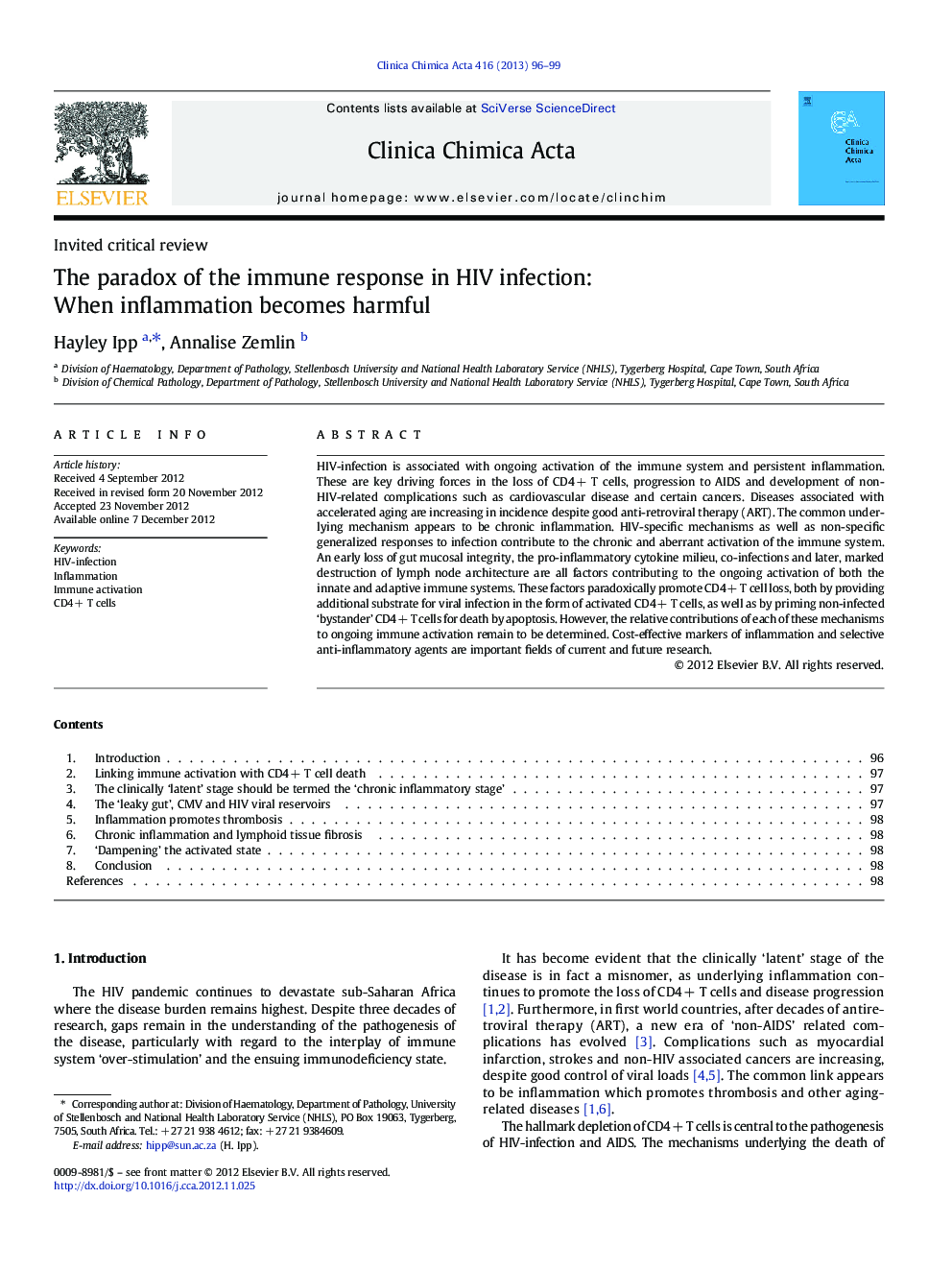| Article ID | Journal | Published Year | Pages | File Type |
|---|---|---|---|---|
| 1965769 | Clinica Chimica Acta | 2013 | 4 Pages |
HIV-infection is associated with ongoing activation of the immune system and persistent inflammation. These are key driving forces in the loss of CD4 + T cells, progression to AIDS and development of non-HIV-related complications such as cardiovascular disease and certain cancers. Diseases associated with accelerated aging are increasing in incidence despite good anti-retroviral therapy (ART). The common underlying mechanism appears to be chronic inflammation. HIV-specific mechanisms as well as non-specific generalized responses to infection contribute to the chronic and aberrant activation of the immune system. An early loss of gut mucosal integrity, the pro-inflammatory cytokine milieu, co-infections and later, marked destruction of lymph node architecture are all factors contributing to the ongoing activation of both the innate and adaptive immune systems. These factors paradoxically promote CD4 + T cell loss, both by providing additional substrate for viral infection in the form of activated CD4 + T cells, as well as by priming non-infected ‘bystander’ CD4 + T cells for death by apoptosis. However, the relative contributions of each of these mechanisms to ongoing immune activation remain to be determined. Cost-effective markers of inflammation and selective anti-inflammatory agents are important fields of current and future research.
► HIV infection is associated with inflammation which drives disease progression. ► Inflammation contributes to CD4 T cell death and increased risk of thrombosis. ► The viral load is not the only contributing factor to immune stimulation. ► Microbes from the leaky gut and CMV are important factors in ongoing inflammation. ► Markers of inflammation could identify those needing earlier access to treatment.
